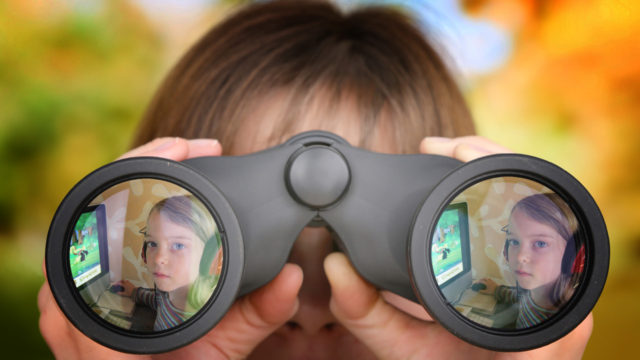In a world of digital reality and hyper-sharing, is it okay to ask for a close one’s password? On the flipside, is it ever a good idea to share your passwords with someone close to you?
Everyone knows it’s foolish to share your ATM pins and Net Banking passwords, and no self-respecting individual would ask for those. But, when it comes to device logins, emails, and social media, opinions on the matter vary greatly.
Sometimes You Can’t Help It
If my roommate’s laptop freezes when she needs to do some urgent work, and my laptop is right there in front of her but I am not there to log into it myself, she might call me and ask for my password. Assuming my roommate is friendly and trustworthy, I would have to be a horrible person to deny her request.
Still, I’d make sure I change it next time I log in.
And if the situation was reversed, I would definitely hesitate to ask for someone’s password. Even if it’s an emergency, I’ll make sure the person understands that it’s okay to say no if they are unwilling.
What About Social Media Passwords?
Normally, when you trust someone with your device’s password, you expect them to be courteous enough not to snoop around. But if someone asks for your social media password, it’s safe to assume that they are asking for permission to spy on you.
It sounds absurd when I put it that way; why on earth would you willingly let someone invade your privacy? But, sharing Facebook passwords is not as uncommon as you think. Such a request usually comes from two sources: parents and partners.
Spy Parents
When tweens sign up for social media accounts, their parents have some understandable concerns like cyber-bullying and threats to personal security due to interaction with strangers. But, asking for passwords might not be the best way to deal with these concerns.
Remember when Edward Snowden leaked proof that the NSA was digitally spying on US citizens? Trust me when I say that most teens would rather have the NSA checking in on them than their own parents. This is because kids know that what desi parents are really worried about is whether their child cusses and whether their child is dating someone.
Even if you have serious concerns (and when I say serious, that does not include teenage crushes; it’s 2017, you need to learn to live with the knowledge that your child has a social life) like mental health or personal security, for the love of all that is sane, do not ask for their passwords.
First of all, you’ll end up losing their respect, because they would feel you don’t trust them. Secondly, how many social networks are you going to keep track of?
If you ask for their Facebook passwords, they’ll move to Instagram, if you ask for Instagram passwords, they’ll move to Twitter, and so on. The list of available platforms is too long for any ordinary person with a day job to keep track of.
Read More: Issues With Cyber Security- How Safe Is Net Banking In India?
You can talk to them, add them to your friend list, and make sure they understand the risks of sharing information with strangers online. But, they will never learn to be responsible for their actions if you’re always breathing down their necks. All it’ll lead to is resentment.
Trusting Partners
Though we don’t feel comfortable exchanging passwords with trustworthy family members and long-term friends, we do feel comfortable doing so with boyfriends and girlfriends. It’s often seen as a sign of mutual trust: I have nothing to hide from you, my love!
I suppose there is something romantic about sharing everything with your significant other, but I believe it to be romantic in the same way Romeo and Juliet is – it ends tragically.
In most circumstances, psychologists advise against it. In relationships, you are already sharing most of your life with another person; it’s only healthy to have some independence. It’s not so much about hiding something as it is about keeping meaningful boundaries where so few exist.
In fact, the line between trust and mistrust in this context is very fine. You share your password as a way of showing your trust. But if your partner feels the need to check your private correspondences, it shows how little they trust you.
There is also the rather obvious risk that if your relationship starts souring, your partner can misuse your password before you realize you need to change it.
Another thing to remember is that you are not only violating your own privacy but, also that of the person you are talking to. Private chats are meant to be private – there is always the reasonable assumption that only the person being texted is reading the texts.
Besides, do you really want to be able to read past conversations between your partner and their exes? That’d be damaging for any relationship.
If you are a truly optimistic romantic who wasn’t deterred by any of these rationales, just think about how you’re going to plan that surprise party you were so excited about if bae has your password!
Image Credits: Google Images
Sources: Wikipedia, Forbes, Wikipedia







































